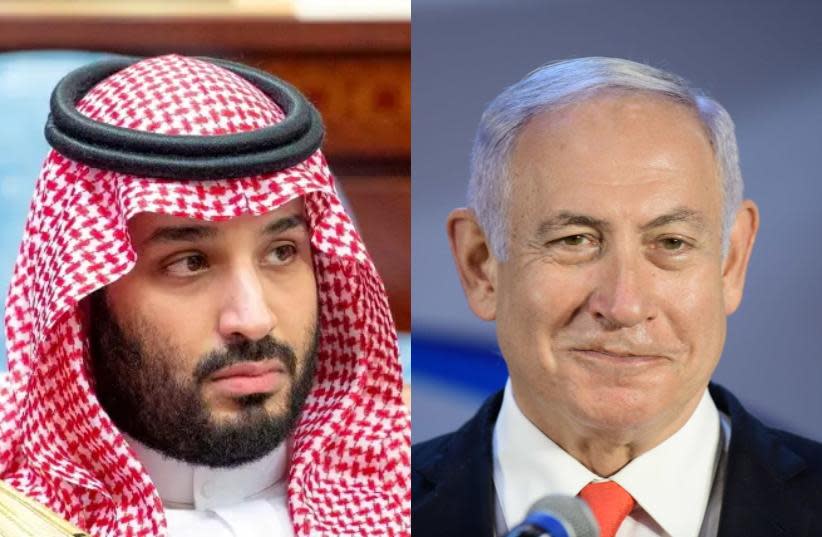Saudi Arabia’s peace with Israel hinges on NATO-style defense pact with US
Saudi Arabia is determined to secure a military pact requiring the United States to defend the kingdom in return for opening ties with Israel, three regional sources familiar with the talks said.
A pact might fall short of the cast-iron, NATO-style defense guarantees the kingdom initially sought when the issue was first discussed between Crown Prince Mohammed bin Salman and Joe Biden during the US president’s visit to Saudi Arabia in July 2022.
Instead, a US source said it could look like treaties Washington has with Asian states or, if that would not win US Congress approval, it could be similar to a US agreement with Bahrain, where the US Navy Fifth Fleet is based. Such an agreement would not need congressional backing.
Washington could also sweeten any deal by designating Saudi Arabia a Major Non-NATO Ally, a status already given to Israel, the US source said.
But all the sources said Saudi Arabia would not settle for less than binding assurances of US protection if it faced attack, such as the Sept. 14, 2019 missile strikes on its oil sites that rattled world markets. Riyadh and Washington blamed Iran, the kingdom’s regional rival, although Tehran denied having a role.

Agreements giving the world’s biggest oil exporter US protection in return for normalization with Israel would reshape the Middle East by bringing together two longtime foes and binding Riyadh to Washington after China’s inroads in the region. For Biden, it would be a diplomatic victory to vaunt before the 2024 US election.
‘Less than a full treaty’
A US official, who like others declined to be named because of the sensitivity of the matter, said the parameters of a defense pact were still being worked out, adding that what was being discussed “would not be a treaty alliance or anything like that … It would be a mutual defense understanding, less than a full treaty.”
The official said it would be more like the US relationship with Israel, which receives the most advanced US weapons and holds joint air force and missile defense drills.
A source in Washington familiar with the discussions said MbS had asked for a NATO-style treaty but said Washington was reluctant to go as far as NATO’s Article 5 commitment that an attack on one ally is considered an attack on all.
The source said Biden’s aides could consider a pact patterned on those with Japan and other Asian allies, under which the US pledges military support but is less explicit about whether US troops would be deployed. However, the source said some US lawmakers might resist such a pact.
Another template, which would not need congressional approval, would be the agreement signed with Bahrain on September 13, in which the US pledged to “deter and confront any external aggression” but also said the two governments would consult to determine what, if any, action would be taken.
The source in Washington said Saudi Arabia could be designated a Major Non-NATO Ally, a step that had long been considered. This status, which several Arab states such as Egypt have, comes with a range of benefits, such as training.
The second of the regional sources said Riyadh was compromising in some demands to help secure a deal, including over its plans for civilian nuclear technology. The source said Saudi Arabia was ready to sign Section 123 of the US Atomic Energy Act, establishing a framework for US peaceful nuclear cooperation, a move Riyadh previously refused to take.
The Gulf source said the kingdom was prepared to accept a pact that did not match a NATO Article 5 guarantee but said the US had to commit to protecting Saudi Arabia if its territory was attacked. The source also said a deal could be similar to Bahrain’s agreement but with extra commitments.
‘Lots of work to do’
In response to emailed questions about details in this article, a US State Department spokesperson said: “Many of the key elements of a pathway towards normalization are now on the table and there is a broad understanding of those elements, which we will not discuss publicly.”
“There’s still lots of work to do, and we’re working through it,” the spokesperson added, saying there was not yet a formal framework and stakeholders were working on legal and other elements.
The spokesperson did not address specifics about the US-Saudi defense pact in the response.





Comments are closed.